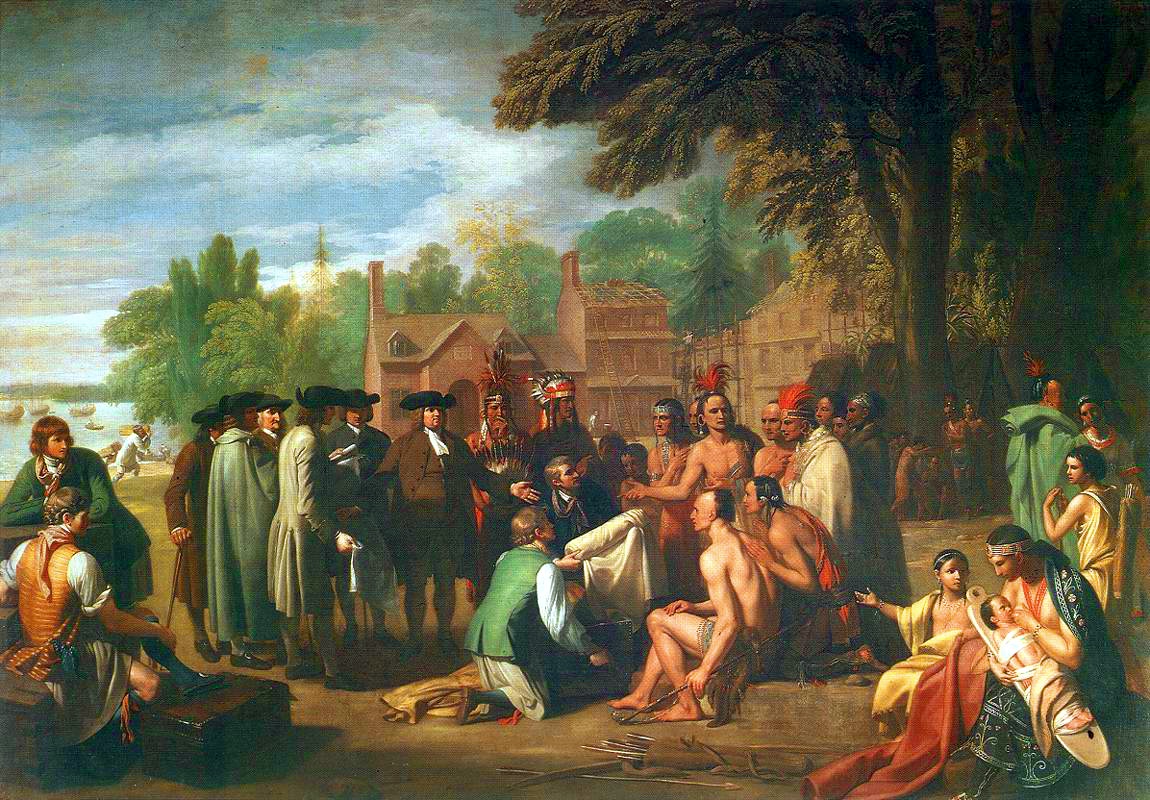William Penn, the founder of Philadelphia and Pennsylvania, is getting canceled in the city he founded.
And it’s coming from above, from the Biden administration.
The Post Millennial explains:
Joe Biden’s National Park Service under Interior Secretary Deb Haaland will remove the statue of William Penn from the park erected in 1982 to commemorate the 300th anniversary of his founding of the colony of Pennsylvania.
![]()
The park is on the site of his original home in Philadelphia.
Biden admin to remove statue of William Penn from Philadelphia park and ’rehabilitate’ the park to commemorate Native Americans, by Libby Emmons, January 7, 2024
Note that Penn actually lived on the site of the park, but it doesn’t matter, his statue is to be removed.
The park, located in Philadelphia near the Delaware River at Sansom and Second Streets, will be ”rehabilitated” and that proposal will include an ”expanded interpretation of the Native American history of Philadelphia.” The plan was ”developed in consultations with the representatives of the indigenous nations of the Haudenosaunee, the Delaware Nation, Delaware Tribe of Indians, the Shawnee Tribe, and the Eastern Shawnee Tribe of Oklahoma.”
If they want a park or monument presenting the history of American Indians in Philadelphia, how about putting it somewhere else? Why do they have to move Penn’s statue and the house out of the park?
It just seems like a way to cancel Penn and the English founding of Philadelphia.
So is William Penn getting run out of his park because he fought the local Indians? Actually, no.
William Penn had very good relations with the Delaware Indians, making a peace treaty with Chief Tamanend which lasted until long after both Penn and Tamanend had passed away. One of the stipulations of the treaty was that, even though the Delaware sold land to the colony of Pennsylvania, they still had hunting rights there. That seemed to work well.
But in 2024, what recognition does William Penn receive for having amicable relations with the Indians?
There are several famous old paintings portraying Penn’s treaty with Tamanend, this one by Benjamin West ...
![]()
and this one by Edward Hicks.
![]()
The treaty was also depicted in some of the over 60 versions of ”The Peaceable Kingdom” painted by Hicks.
![]()
While much of the original design of the park will remain, the statue of Penn and the model of his original home ”will be removed and not reinstalled.” The Park Service claims that at some later date, which is not currently funded, there will be a new exhibit that mentions Penn and his work founding what became the state named for him as well as the city of Philadelphia.
Hey, if it weren’t for William Penn, neither Pennsylvania nor the city of Philadelphia would exist.
By the way, Pennsylvania wasn’t named for William Penn, but for his father, Admiral Penn, who of course had the same surname.
The park in question is ”Welcome Park,” named for the ship that brought Penn from England in 1682.
The park was built to celebrate Penn, his life, and the colony he founded which became the great state of Pennsylvania. Pennsylvania was one of the original 13 colonies, and Penn founded the colony on the principles of religious freedom and civil freedoms.
Penn’s Charter of Privileges was the governing document and was brought into effect in 1701 and acted as the constitution for what was then called Penn’s Woods. The land had been a [sic] given to Penn by King Charles II as payment for a debt that Charles owed Penn’s father who had been an admiral in the British Navy.
Penn was a Quaker who believed in religious freedom as a guiding principal [sic]. Philadelphia became known as a Quaker city, and still holds many meetinghouses and Quaker schools. Quakers were abolitionist and led the abolitionist movement. Quakers began the fight for abolition in Philadelphia in the 1680s.
A National Park Service document here is asking for public comments on the park in Philadelphia, so make your voice heard. You have until January 21st.

















